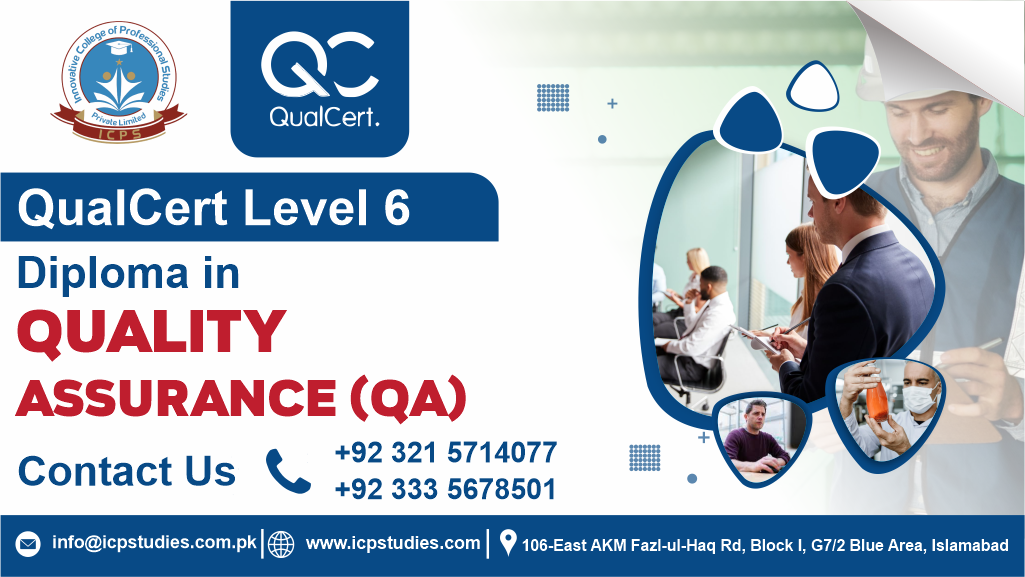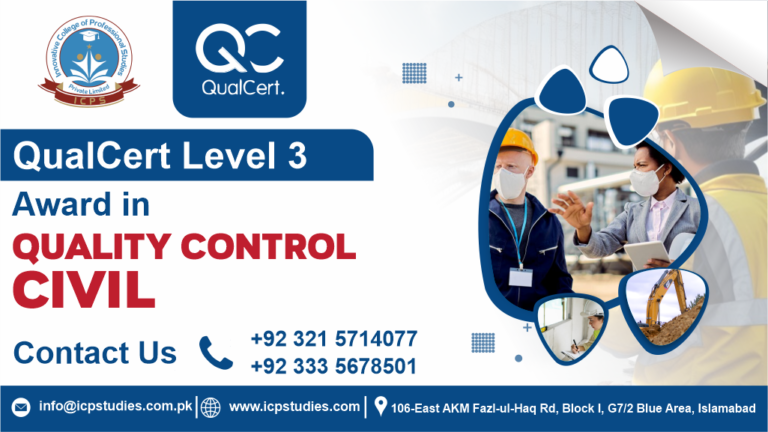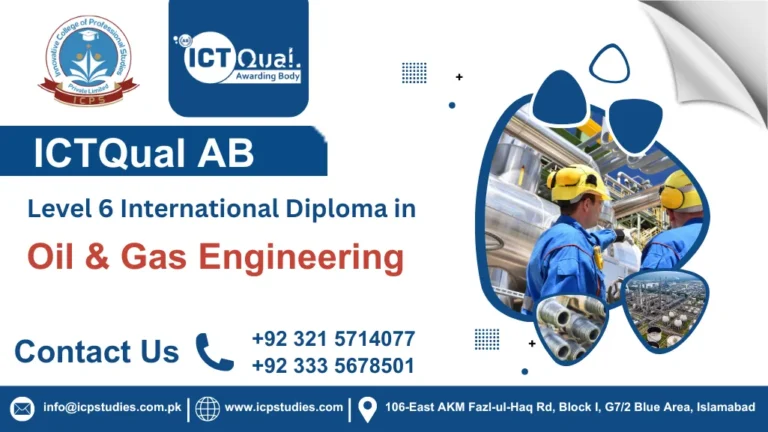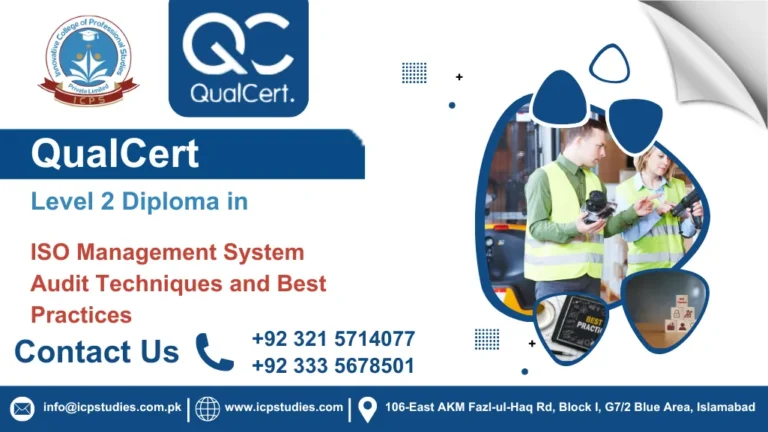The Quality Level 6 Diploma in Quality Assurance (QA) is a prestigious UK-based qualification designed for professionals looking to enhance their expertise in quality management. This diploma is entirely assignment-based, eliminating the need for exams, and is widely recognized across the globe. Whether you are a seasoned quality assurance professional or looking to start a career in this field, this course provides an in-depth understanding of QA principles, methodologies, and best practices.
This Level 6 diploma is designed to equip learners with the knowledge and skills necessary to implement, manage, and improve quality systems in various industries. It follows a structured, assignment-based approach, allowing students to apply their learning in real-world scenarios. The course is recognized by employers worldwide, making it a valuable addition to any professional portfolio.
The Quality Level 6 Diploma in Quality Assurance (QA) is an ideal choice for professionals looking to excel in the field of quality management. With its flexible, assignment-based approach, industry-relevant curriculum, and global recognition, this diploma sets the foundation for a successful career in QA. Whether you aim for career growth, professional certification, or further education, this qualification is your gateway to excellence in quality assurance.
Start your journey toward mastering quality assurance today!
All About Quality Level 6 Diploma in Quality Assurance (QA)
Course Overview
the Quality Level 6 Diploma in Quality Assurance (QA) is a highly respected UK-based qualification designed to provide professionals with advanced knowledge and practical skills in quality management. This globally recognized diploma is entirely assignment-based, making it an ideal choice for those seeking flexibility in their learning journey. The course is tailored for individuals looking to enhance their expertise in quality assurance, compliance, auditing, and process improvement, equipping them with the necessary tools to implement and maintain effective quality management systems across various industries. Whether you’re an experienced quality professional or aspiring to enter the field, this diploma offers a solid foundation for career advancement and professional growth.
Study Units
- Quality Management in Organizations
- Continuous Improvement Techniques
- Quality Audit Practices
- Risk Management in QA
- Supplier Quality Management
- Regulatory and Legal Framework for QA
To enroll in the Level 6 Diploma in Quality Assurance (QA), candidates must meet specific prerequisites to ensure they are prepared for the course’s advanced content. The requirements generally include:
- Age: Applicants must be at least 18 years old.
- Education: A Level 5 qualification in a related field or an equivalent diploma/degree is required.
- Experience: While not mandatory, prior industry experience in quality assurance, quality control, or a related field is recommended.
- English Language Proficiency: Candidates must demonstrate proficiency in English, either through prior education in English or a recognized language proficiency test.
The Level 6 Diploma in Quality Assurance (QA) is designed for professionals looking to enhance their expertise in quality management and assurance. This course is ideal for:
- Quality Assurance Managers: Current or aspiring managers in QA departments seeking to deepen their understanding of advanced QA practices and strengthen their leadership skills.
- Quality Control Specialists: Professionals aiming to expand their knowledge of quality management systems and implement more advanced quality control techniques.
- Compliance Officers: Individuals responsible for ensuring regulatory and industry standards compliance, who require a thorough understanding of quality assurance.
- Project Managers: Managers overseeing projects where quality assurance plays a key role, looking to improve strategic planning and risk management for better project outcomes.
- Operations Managers: Professionals managing business operations who wish to integrate quality management principles to drive continuous improvement and operational excellence.
- Process Improvement Specialists: Those focused on optimizing business processes and systems, seeking to apply advanced QA techniques for greater efficiency and effectiveness.
- Business Analysts: Analysts who need in-depth knowledge of quality assurance to assess and recommend improvements within their organizations.
- Consultants: Quality management consultants aiming to enhance their ability to provide sophisticated solutions and insights to clients.
- Academic and Training Professionals: Educators and trainers in quality management looking to update their knowledge and teaching materials with advanced QA concepts.
Learning Outcomes
1. Quality Management in Organizations
- Explore the principles and frameworks of quality management systems.
- Examine the role of quality management in organizational success and sustainability.
- Implement quality control and assurance strategies to improve operational efficiency.
- Evaluate various quality management models and their industry applications.
- Develop leadership skills to cultivate a culture of continuous improvement.
2. Continuous Improvement Techniques
- Apply key methodologies such as Kaizen, Lean, and Six Sigma.
- Leverage data-driven decision-making to enhance process efficiency.
- Strengthen problem-solving skills to identify and eliminate workflow inefficiencies.
- Measure and analyze performance metrics to drive sustainable improvements.
- Engage employees in continuous improvement initiatives for long-term success.
3. Quality Audit Practices
- Understand the purpose and significance of quality audits in maintaining standards.
- Acquire skills to plan, conduct, and report on internal and external audits.
- Utilize risk-based auditing techniques to assess quality systems and processes.
- Interpret audit findings and recommend corrective and preventive actions.
- Ensure regulatory compliance through effective auditing practices.
4. Risk Management in Quality Assurance
- Identify and assess risks associated with quality assurance processes.
- Develop risk mitigation strategies to prevent quality failures and non-conformities.
- Implement risk management frameworks to ensure industry compliance.
- Analyze real-world case studies on the impact of risk management in QA.
- Utilize proactive risk assessment tools like Failure Mode and Effects Analysis (FMEA).
5. Supplier Quality Management
- Assess supplier quality performance and compliance with industry standards.
- Implement supplier qualification and monitoring processes to maintain quality standards.
- Develop effective communication and collaboration strategies with suppliers.
- Analyze the impact of supplier quality on overall business performance.
- Apply corrective action procedures to address supplier-related quality issues.
6. Regulatory and Legal Framework for Quality Assurance
- Understand key regulatory requirements and legal aspects of QA.
- Examine international and industry-specific quality standards and compliance mandates.
- Develop policies and procedures to ensure regulatory adherence.
- Assess the legal implications of non-compliance and quality-related disputes.
- Implement best practices for maintaining compliance in a dynamic regulatory environment.
FAQs Quality Level 6 Diploma in Quality Assurance (QA)







